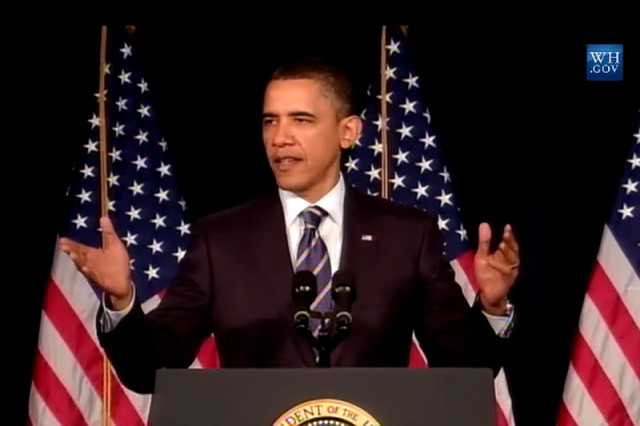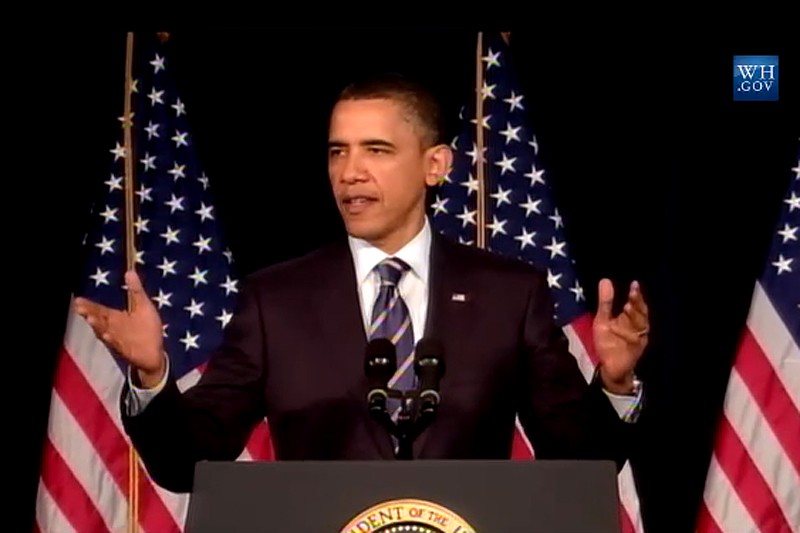WASHINGTON, April 13, 2011 -- President Barack Obama today said he will work with Defense Secretary Robert M. Gates and the Joint Chiefs of Staff to find more savings in the Defense Department to reduce the federal deficit.
Obama made the statement as part of a speech at George Washington University here, to set the framework to reduce federal borrowing over the next 12 years by $4 trillion.
The plan includes $2 trillion in savings, Obama said, building on $1 trillion in savings proposed in the administration's fiscal year 2012 budget, which includes $78 billion from the Defense Department.
After identifying savings in domestic spending, the president said, the second step is to find additional savings in the defense budget.
"As commander in chief, I have no greater responsibility than protecting our national security, and I will never accept cuts that compromise our ability to defend our homeland or America's interests around the world," Obama said. "But as the chairman of the Joint Chiefs, Admiral [Mike] Mullen, has said, the greatest long-term threat to America's national security is America's debt."
The federal government can make cuts in national security "while still keeping ourselves safe," the president said.
"Over the last two years, Secretary Bob Gates has courageously taken on wasteful spending, saving $400 billion in current and future spending," Obama said. "I believe we can do that again. We need to not only eliminate waste and improve efficiency and effectiveness, but conduct a fundamental review of America's missions, capabilities, and our role in a changing world. I intend to work with Secretary Gates and the Joint Chiefs on this review, and I will make specific decisions about spending after it's complete."
Obama said the cost of the wars in Iraq and Afghanistan, as well as the Medicare Prescription Drug, Improvement, and Modernization Act of 2003, put expenditures too high as tax cuts simultaneously reduced federal revenues in the early 2000s. Add to that the national recession and the administration's emergency bail-out funding for recovery, he said, and "that's how we got where we are." The country now has more than $14 trillion in debt.
"We must restore the fiscal responsibility that served us well in the 1990s," the president said. "We have to live within our means."
At the same time, Obama said, he will work to preserve reasonable funding levels for Medicare, Medicaid, Social Security, education and the environment.
Reducing the debt and the deficit -- the gap between spending and revenues -- "will affect all Americans in potentially profound ways," Obama said. "We will all need to make sacrifices, but we do not have to sacrifice the America we believe in."
Brian Deese of the administration's National Economic Council said in a public Web chat after the president's speech that Obama believes $400 billion more can be found in national security budgets, but he "has made clear he won't designate specific cuts" until Gates, Mullen and others review future budget projections.
The savings identified from pulling U.S. forces out of Iraq by the end of this year and from Afghanistan by 2014 are included in the fiscal year 2012 budget, and are not reflected in the additional $400 billion, Deese said.
Related Links:
Army says 'generating force' should not be cut further


Social Sharing